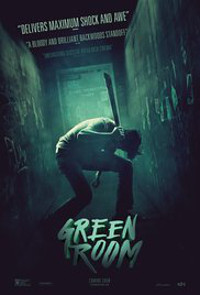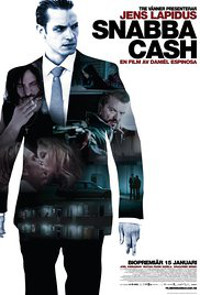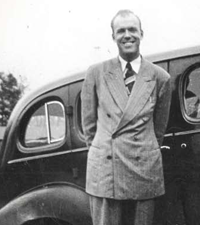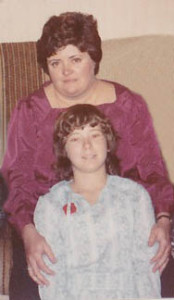 Some people picked Green Room as one of the best movies of 2016. It features one of the last performances of Anton Yelchin, the young actor who died in a tragic accident last June, and Patrick Stewart of Star Trek and X-Men fame, who is cast against type as a menacing villain.
Some people picked Green Room as one of the best movies of 2016. It features one of the last performances of Anton Yelchin, the young actor who died in a tragic accident last June, and Patrick Stewart of Star Trek and X-Men fame, who is cast against type as a menacing villain.
The movie is about four members of a punk rock band who accept a gig in a redneck nightclub somewhere in the Pacific Northwest. After performing a quick set before a crowd of neo-Nazis and skinheads, one of the band members returns to the green room to recover a phone charger and interrupts a murder scene. The band members and a bystander named Amanda (Imogen Poots) become trapped in the green room as the nightclub’s owner (Stewart) and his thugs attempt to kill the witnesses.
Green Room has a remarkably simple premise. After the first hour, viewers will be surprised to realize that the movie won’t change, won’t become more complex. It’s five people trapped in a room, threatened by skinheads and attack dogs. That’s all you’re gonna get.
But is that enough? Nah.
Granted, the movie is tense in several scenes, Stewart plays a great villain, and the direction and camera work are effective. The problem is the uninspired script, which paints the movie into a corner. Also, the dialogue is often ambiguous or strange. For most of the movie, I had no idea what the heck the villains were talking about; they spoke in code that only they understood.
The five protagonists are mostly forgettable, with one exception; Imogen Poots does fine work. Anton Yelchin gives a low-key performance, but it’s not his best work. (It’s also not his last film. He’ll appear later this year in the neo-noir thriller Thoroughbred, which is currently showing at Sundance.)
The director of Green Room is Jeremy Saulnier. In 2013, Saulnier directed his first movie, Blue Ruin, one of the best movies of that year. (I saw it at the Secret Film Festival in Santa Cruz.) For his second movie, Saulnier could have taken on a bigger budget project. Instead, he opted to make Green Room, a low-budget horror movie that anyone could have directed. It’s routine midnight movie fare, a big disappointment.
 Easy Money is a Swedish underworld crime drama from 2010. It features Joel Kinnaman, the star of AMC’s The Killing series. Based on a bestselling crime novel by Jens Lapidus, Easy Money presents three interrelated storylines, and the stories beautifully converge in a suspenseful climax.
Easy Money is a Swedish underworld crime drama from 2010. It features Joel Kinnaman, the star of AMC’s The Killing series. Based on a bestselling crime novel by Jens Lapidus, Easy Money presents three interrelated storylines, and the stories beautifully converge in a suspenseful climax.
Kinnaman handles the starring role with movie-star coolness. The camera likes his chiseled face and feline athleticism. He plays a taxi driver who also takes business classes at night. He’s a social climber who enjoys the company of his wealthy friends. Desperate for money, he gets involved with a cocaine deal that pits Serbian gangsters against Arab drug dealers.
Although the movie lags a bit at the midpoint, it picks up nicely at the end. Tonally, the movie is earnest and somber, much like Michael Mann’s Heat. The characters seem resigned to their fate. In developing the characters, some of the scenes run longer than expected, which slows the film down but makes it richer. The movie has the deliberate pacing of a TV miniseries rather than an action movie.
This gritty film has a smart script, art-film editing, and excellent performances. The multi-ethnic cast speaks Swedish, Arabic, Serbian, and Spanish. Unlike many other crime films, it doesn’t take lazy shortcuts with characters. It also doesn’t alternate focus from the cops to criminals. Easy Money sticks with the criminals, who continuously scheme against one another. Although it’s unclear who will win, keep your eyes on Kinnaman. He’s fascinating to watch.
The novel and movie spawned two sequels, Easy Money II: Hard to Kill and Easy Money III: Life Deluxe, both starring Kinnaman.
Share this:




